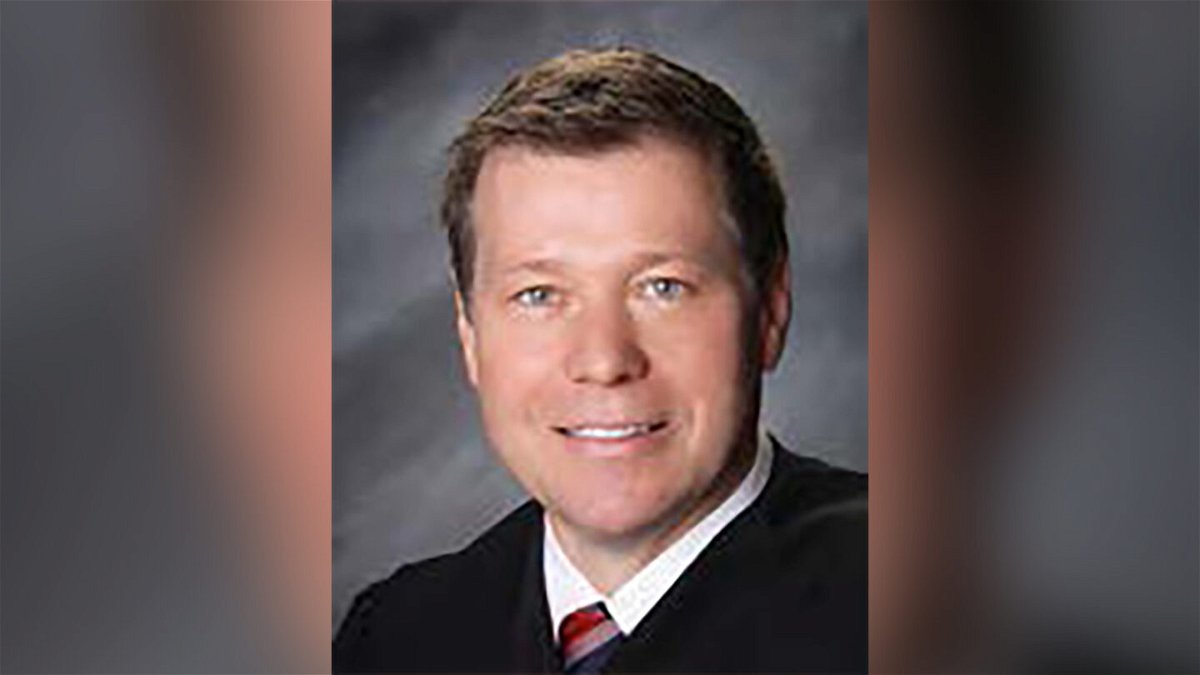Meet the judge who ruled medication abortion must remain available in some states

US District Judge Matthew Kacsmaryk of Texas first ruled Friday that the Food and Drug Administration's 2000 approval of mifepristone -- one of the drugs used to terminate a pregnancy -- needed to be halted.
By Sydney Kashiwagi, CNN
What initially looked like an outright victory for anti-abortion activists Friday evening soon became more complicated.
US District Judge Matthew Kacsmaryk of Texas, an appointee of former President Donald Trump, first ruled Friday that the Food and Drug Administration’s 2000 approval of mifepristone — one of the drugs used to terminate a pregnancy — needed to be halted.
But less than an hour after Kacsmaryk’s ruling, US District Judge Thomas Owen Rice of the Eastern District of Washington, an appointee of former President Barack Obama, ordered the federal government to keep the drug available in 17 states plus the District of Columbia.
Because the decisions out of the two courts are so contradictory, intervention from the US Supreme Court is a real possibility.
In the meantime, here’s what you need to know about Rice.
History presiding over high-profile cases
Rice was appointed to the Eastern District of Washington in 2011 by Obama. He was confirmed to the position by the US Senate in a 93-4 vote in 2012.
He had served as an assistant US attorney in Washington state starting in 1987. In that role, he focused on issues related to eminent domain and Social Security claims. Prior to that, Rice was a trial attorney in the tax division of the US Department of Justice, where he specialized in abusive tax shelter litigation.
Rice previously sided with an abortion rights group. In 2018, he issued a permanent injunction that blocked the Trump administration from stopping grants to a Planned Parenthood program that funded teen pregnancy prevention programs around the country.
That case was brought against the Trump administration by Planned Parenthood after the administration ended Teen Pregnancy Prevention grants earlier than they were supposed to end for 81 organizations across the US, claiming they had been unsuccessful.
“The Court determines that the public interest weighs in favor of (Planned Parenthood), as it would prevent harm to the community … and prevent loss of data regarding the effectiveness of teen pregnancy prevention,” Rice wrote at the time.
When residents of Yakima, Washington, sued the city, claiming its “at-large” seats on the City Council prevented Latinos from electing members who represented their Latino-majority community, Rice ruled that the election system violated the Voting Rights Act.
“The existing record, undisputed in all material respects, supports only one rational conclusion: that under the totality of the circumstances, City Council elections are not ‘equally open to participation’ by Latino voters,” Rice said in his 2014 Montes v. City of Yakima decision. “The numbered post system, with its effective majority vote requirement, places Latino voters at a steep mathematical disadvantage, even when their voting strength is perfectly optimized.”
In recent weeks, Rice has presided over cases related to a federal firearm offense, assault of a federal officer with a deadly weapon, and fraudulently obtained Covid-19 relief funds.
What previous comments tell us
Rice’s response to lawmakers during his confirmation hearing offered a glimpse into how he thinks as a judge and how he would view the decisions of higher courts.
When asked by Republican Sen. Chuck Grassley of Iowa if he was committed to following the precedents of higher courts “faithfully and giving them full force and effect, even if you personally disagree with such precedents,” Rice responded “yes.”
Rice was also asked which sources and guiding principles he would use in deciding cases of first impression if there were no controlling precedents that “dispositively concluded an issue” before him.
“I would first turn to the plain meaning of the words of the statute,” the judge responded. “If necessary, I would seek to determine the context and intent of Congress. I would also look to analogous cases from the Supreme Court and the Ninth Circuit Court of Appeals for guidance. If no other similar cases were available, I would consult other federal court decisions that considered the issue or like issues.”
Rice also said he would “apply binding Supreme Court and Court of Appeals precedent without regard to my personal judgment” when he was asked what he would do if he thought the Supreme Court or the court of appeals had “seriously erred in rendering a decision,” and if he would either apply that decision or use his “own judgment of the merits, or your best judgment of the merits.”
Following Kacsmaryk’s ruling in Texas, the Justice Department and a mifepristone manufacturer have filed notices of appeal. They are appealing in the US 5th Circuit Court of Appeals, which is considered the country’s most conservative appeals court.
Attorney General Merrick Garland said the Justice Department was still reviewing Rice’s ruling in Washington.
The-CNN-Wire
™ & © 2023 Cable News Network, Inc., a Warner Bros. Discovery Company. All rights reserved.
Reporters Tierney Sneed and Devan Cole, CNN contributed to this report